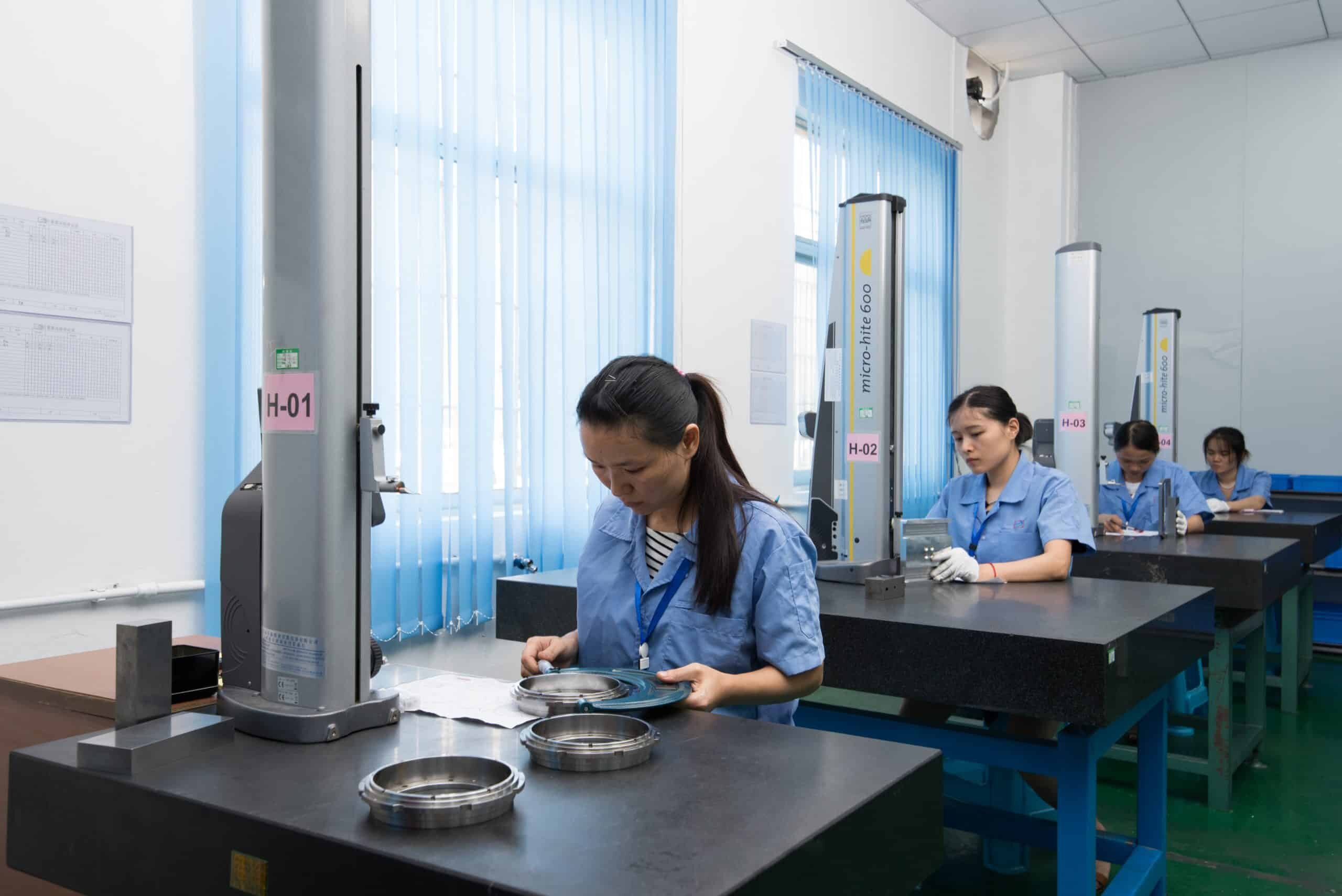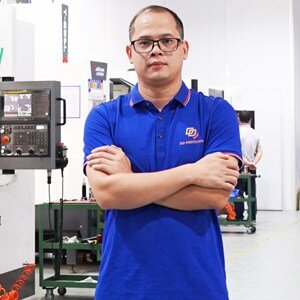
Rapid Prototyping & Rapid Manufacturing Expert
Specialize in CNC machining, 3D printing, urethane casting, rapid tooling, injection molding, metal casting, sheet metal and extrusion
Quality Inspection is the first priority of CNC machining
If you intend to start a CNC project, have completed the design of the prototype and exported the CAD file, it is very likely that you will decide to find a third-party CNC machining workshop to provide manufacturing services.As we all know, especially the CNC machining factories in Shenzhen, China have the advantages of low-cost, high quality and fast turnover, which are the first choice for obtaining high-quality CNC machining services. However, they are on the other side of the world, and you cannot monitor the manufacturing process of the parts on site, so how can you ensure high-quality machined parts?
Although CNC machining is more efficient and less error-prone than traditional machining methods, quality inspection is still an essential step in the manufacturing process.
In this article, we will introduce all factors of quality control in a CNC machining workshop. It serves as a guide to help you quickly identify a trusted CNC machining factory to ensure that the machined prototype is flawless.

*Why is quality inspection very important?
Quality inspection runs through the entire manufacturing process, with full inspection of the final part. In CNC machining, quality control is crucial to ensure that the manufactured products meet customer expectations, industry standards and industry regulations. It can effectively avoid defective products, minimize risks, ensure correct size and accuracy, reduce costs, and improve efficiency.
Sometimes you may have the experience that if you design a medical part with very tight tolerances, after working with a third-party CNC machining factory, it seems that you can trust them. However, when you receive the part, you find that there are several tolerances that do not meet the requirements of the 2D drawing, and there is no problem with viewing the inspection report. The result is that there is no way to assemble this part with other parts. After communication, the detection tools used by the two parties are different, and the detection results are also different. Therefore, quality control is a systematic project that runs through the entire process from design to end use.

*To understand the industry background
CNC machining factory must fully understand the standard rules of various industries. After accepting CAD drawings, they should not only pay attention to the labeling of the drawings, but also have a good understanding of the background of each industry, such as surface finish, tolerances, and even material properties. In fields such as medical and defense, tight tolerances are often required to ensure that parts maintain their mechanical properties under extreme conditions.

*Skilled in product design and specifications
Project engineers and quality engineers must be able to analyze the design, carefully check the tolerances and requirements of every detail of the CAD drawings. Moreover, it is necessary to maintain close communication with customers to understand the functions and uses of parts, so that key points can be controlled to ensure the quality of processing. Martin Mu, the person in charge of DDPROTOTYPE, a leading prototype manufacturer in China, said, “In September 2021, after receiving an order for SS316L, the customer requested mirror polishing, but did not require a polishing grade, which required timely communication with the customer. After introducing the tolerance of high polishing around 0.10mm, the customer fully accepted the suggestion and said that there is no problem between 0.01-0.15mm.” After that, this part successfully entered the mass production stage.

*Inspect raw materials before CNC machining
Many CNC machining factories regard the quality inspection of parts as the last step in the production process. No, this is wrong. While final testing is critical, quality control should start at the source. Before processing, it is necessary to ensure that the materials used are of high quality and meet customer requirements. If necessary, third-party testing is required. For example, SGS testing is very authoritative. This can effectively prevent waste. Even the highest precision is an inferior product if defective materials are used. In order to prevent these mistakes, CNC machining shops must check the quality of raw materials before processing.

*Certification is essential
Make sure that the CNC machining factory you choose has obtained the ISO9001 quality management system certification, strictly abides by the requirements of laws and regulations, and ensures the provision of high-quality CNC machining services. The ISO9001 quality management system cannot guarantee 100% that there will be no errors, but it will reduce the risk.


For some special industries, CNC machining factories are also required to have additional certification. For example, medical-grade products require ISO 13485 certification, and auto parts require ISO 16949 certification. It meets the standards of strict quality system certification and is a reliable guide for you to choose a high-quality production partner.
*Advanced CNC machine tool is one of the factors to ensure the quality of parts
The type of CNC machine used to create a prototype part plays an important role in the quality of the final part. There are many types of CNC machine tools, generally classified by the number of axes of operation, such as 3-axis, 4-axis, and 5-axis. For a part, a 5-axis CNC machine tool can mill in 5 directions without flipping, so it can provide better surface finish and meet strict tolerances, especially suitable for machining parts with complex structures. But not all parts have to be machined on a 5-axis CNC machine to get a satisfactory part. Choose a qualified CNC machining factory to see if it offers 5-axis CNC machining services. Of course, ensuring the quality of the parts also depends on the expertise of the CNC operator.

*CNC machine is operator dependent
Despite some manufacturers flaunting their certifications and state-of-the-art tooling, there have been many failed cases where customers received low-quality or unusable CNC parts. Usually, these problems can be traced back to the operator. Authoritative certificates and advanced CNC machines will be meaningless without long-term experience accumulation or poor operator working skills. A failed project cannot be blamed on the CNC machine without safety, the operator’s factor accounts for a very large proportion. A qualified CNC machining factory must have certain technical precipitation. For example, 20 years of CNC machining experience can basically deal with all complex CNC projects, but it cannot guarantee 100%. Therefore, CNC machining factories must establish a strict internal quality management system for operators and technicians, with corresponding solutions. For some complex CNC projects, more experienced operators and technicians should be selected to be responsible.

*Three kinds of inspections by a trustworthy CNC machining workshop
Check during parts machining. Quality inspection runs through the entire machining process of parts, which is very beneficial for early detection of problems and prevention of secondary rework. According to the requirements of the 2D drawings, after performing some operations, the key parts need to be measured, and the machine can be adjusted to maintain tighter tolerances. For example, adjust the offset position of the tool, leave a little extra stock, and let the tool mill again until it meets the strict tolerance requirements.
Probe automatic detection. During CNC machining, fully automated monitoring is performed using programmed probes to verify critical features and tolerances of the part, and to adjust work coordinates and cutting tools accordingly.

Inspection by Quality Control (QC) department. The final inspection of the parts by the QC experts in the CNC machining Factory. After the inspector confirms that the specified and in-process inspections have been completed in accordance with the internal quality inspection standards, he uses advanced inspection equipment such as altimeters, microscopes, 2D projectors, micrometers, and coordinate measuring machines (CMM) to ensure that the certificates of conformity required The remaining inspection and testing, such as, size, hardness, color, tolerance, etc. The results of all inspections and tests are recorded to form a full-scale inspection report, and only parts that pass the final inspection can be packed and delivered.

*Maintain a good communication with customers
Whether it is before processing, during processing or after sending parts, a trustworthy CNC machining factory must keep in touch with customers in a timely manner to obtain feedback until customers are satisfied.
In conclusion
When a CNC machining factory has a good quality system, everyone is a part of it and committed to producing high-quality parts is the goal that is always pursued. With reference to the above 11 tips, We hope you will find a satisfied partner for your next CNC project.


